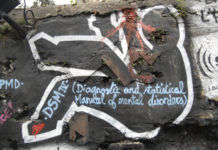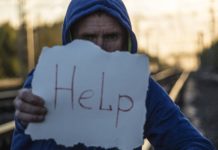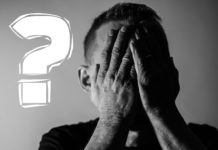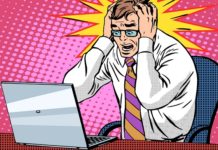Researchers: “Antidepressants Should Not be Used for Adults with Major Depressive Disorder”
A new review, published in BMJ Evidence-Based Medicine, concludes that antidepressants should not be used as the risks outweigh evidence for benefits.
A Biopsychosocial Model Beyond the Mind-Body Split
Can a renewed biopsychosocial approach, grounded in an updated philosophy, foster person-centered medicine, and psychiatry?
Time’s Up: Culture of Denial Impacts Mental Health of Sexual Abuse Survivors
Study finds that not believing sexual abuse survivors often leads to self-blame and mental health issues.
Decontextualized Depression and PTSD Diagnoses Fail Indigenous Communities
A case analysis of an American Indian woman illustrates how the DSM diagnostic criteria misrepresent the lives of indigenous people.
How Social Dynamics at School Impact Teen Suicide
Teen suicide risk is influenced by relationships with adults and teachers, perceived popularity, close friendships, and school connectedness.
Zoloft Does Not Improve Depression, Even in Severe Cases, Study Finds
Despite their finding, the researchers suggest that SSRIs be given to people who do not meet criteria for depression or anxiety.
Tensions in Mental Health Care in China: An Interview with Zhiying Ma
Anthropologist Zhiying Ma explores mental health care in China, including tensions between Western psychiatry and socially-oriented local frameworks.
Economic Deprivation and Social Fragmentation Drive Suicide Rates in US
Major study finds that economic deprivation and a lack of social capital are driving increasing rates of suicide in the U.S.
How to Involve Youth in Their Own Mental Health Care
Clinicians play a key role in empowering adolescents and their parents to make decisions about their mental health treatment.
Antidepressant Use Associated With More Violent Suicide Attempts
A new study found that taking an antidepressant medication was associated with a heightened risk of suicide using violent means.
Antidepressant Use Does Not Prevent Suicide, Study Finds
A new study has found that antidepressants are ineffective for reducing suicide attempts. Researchers report that the risk of suicide is particularly high in the first month after starting an antidepressant.
Therapy Gets More Effective Over Time While Antidepressants Decrease in Effectiveness
New review of long-term depression data finds psychotherapy more effective over time whereas antidepressants decrease in effectiveness.
Scaling Up Psychiatric Interventions Globally May Impede UN Goals
Peter Lehmann argues that administering psychiatric drugs in low-and-middle-income countries works at cross purposes with the United Nations Sustainable Development Goals.
Psychiatrist Describes Role in Open Dialogue Model of Care
Psychiatrist outlines varying roles in Open Dialogue model, fostering service-user and family agency through meaningful conversations with a team of providers.
How Does the Soteria House Heal?
The alternative treatment model of Soteria helps individuals suffering from schizophrenia without relying on medication or coercion.
Guidelines Recommending Antidepressants “in Contradiction with the Current Evidence”
Researchers critique the German S3 guidelines for depression promoting antidepressants.
Connectedness at School Related to Students’ Emotional Health
New research highlights differences in levels of school connectedness among students diagnosed with emotional and behavioral disorders,
Belgian Guidelines Recommend “DSM Categories Not be at the Centre of Care Planning”
The Superior Health Council of Belgium documents numerous problems with the evidence base in the manuals used to diagnose “mental illness” and cautions against their use.
Service-Users Who Found CBT Unhelpful Offer Their Perspectives
Counseling clients in the UK who found CBT unhelpful were interviewed about their experiences.
Effective Therapists’ Skills May be Rooted in Personal Histories
Systematic review differentiates the qualities of effective therapists from those that are less effective and finds that successful therapists’ professional skills are connected to their personal lives.
How Do We Test the Effects of Long-Term Exposure to Antipsychotics?
A new attempt to study the neurological effects of long-term exposure to antipsychotics uses healthy volunteers on minimal doses for 15 days.
School-Based Mindfulness Leads to Stress Reduction, Study Finds
Researchers find improvements in stress-related outcomes among middle school students exposed to a school-based mindfulness training program.
Explaining Depression Biologically Increases Prognostic Pessimism
Psychoeducation that explains depression in biological terms increases prognostic pessimism, perceived stability of depression, and openness to psychiatric medication.
Psychiatrist Offers Ecological Model for Psychotherapy
Insights from phenomenological philosophy can assist in understanding psychotherapy and psychopathology as ecological rather than individualistic.
Experiences of Bullying May Explain “Paranoia” in Sexual Minorities
Bullying leads to a feeling that people plan to harm you, which can be misconstrued as “paranoia” and considered a “psychotic symptom.”

































